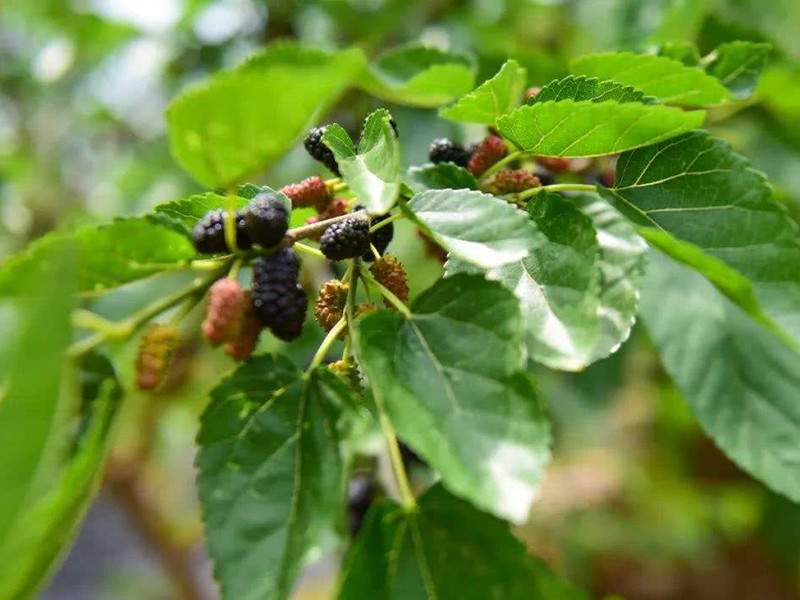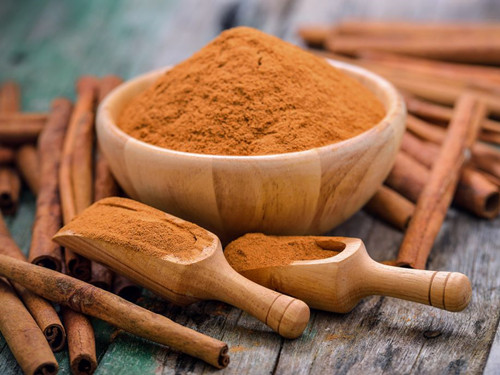Dietary therapy is the main adjunct therapy for diabetes, and the role of glycemic index (GI) has been paid more and more attention. Some plant extract that are known to have a low GI can help regulate blood sugar levels and promote overall health. In this article, we will introduce what’s glycemic index and the best plant extract to lower glycemic index.
What’s glycemic index (GI)?
The GI (Glycemic index) is a physiological parameter used to describe the ability of carbohydrates in a food to raise blood sugar after a meal. Simply put, the more likely a food is to cause a rapid rise in blood sugar, the higher its GI value, and the lower its GI value. According to the GI value, the food can be divided into different grades, GI>70 is a high GI food, 55 The best plant extract to lower glycemic index is likely to be those containing polysaccharides and fibers, In the digestive tract, they can slow down the absorption of carbohydrates. The digestion of carbohydrates involves a variety of digestive enzymes, and inhibition of these enzymes reduces the absorption and utilization of carbohydrates. At present, Some examples of plant extracts have been found to inhibit the activities of amylase and glucosidase, such as fenugreek extract, cinnamon extract, L-arabinose, white kidney bean extract, mulberry leaf extract, etc. Mulberry leaf extract Mulberry leaf extract has been demonstrated to reduce the glycemic indexes of various meals, indicating its potential in managing blood sugar levels. The active ingredient of mulberry leaf extract 1-Deoxynojjycin (DNJ), which is similar in structure to sugar, has competitive inhibitory activity on α-glucosidase. By inhibiting the activity of α-glucosidase, it slows down/reduces the digestion and absorption of sugar and carbohydrates by the human body, thereby reducing the degree of postprandial-blood sugar rise and making blood sugar more stable. Therefore, mulberry leaf extract can be used to reduce the GI value of some foods containing sugar and carbohydrates. Corn cobs and husk extract(L-arabinose) Corn husks and cores are rich in L-arabinose, which is a natural sugar and a carbohydrate that cannot be used by the human body. L-arabinose used in industry is made from corn cob and corn husk by dilute acid hydrolysis, yeast fermentation, separation, purification, crystallization, drying and other processes, and can also be obtained from D-xylose by uridine diphosphate derivatives through enzyme isomerization reaction. Scientists and nutritionists have done a lot of research on the effects of L-arabinose on sugar metabolism in the gut: Clinical trials have shown that L-arabinose can selectively inhibit the activity of small intestine sucrase, thereby reducing the digestion and absorption of sucrose in the body to reduce the related blood sugar fluctuations, and has a blocking effect on the metabolic transformation of sucrose, so that it has potential in weight loss and diabetes control. The American Medical Association also lists L-arabinose as an anti-obesity agent in nutritional supplements or over-the-counter medicines. White kidney bean extract A formula containing kidney bean extract has shown potential in reducing the GI of carbohydrate foods. White kidney bean extract contains α-amylase inhibitor (α-AI), which inhibits the activity of saliva and pancreatic α-amylase in the human digestive tract through specific binding to the α-amylase glycoside site, thereby effectively inhibiting the decomposition and absorption of starch-based carbohydrates in food, and then inhibiting the increase of postprandial blood glucose concentration, which is suitable for reducing the GI of high-starch foods. At present, white kidney bean extract is widely used in water-based functional food. Fenugreek seed extract Fenugreek is known to have blood-sugar-lowering properties and has a long history of use in Ayurvedic medicine. A Malaysian research team conducted an experiment evaluating fenugreek seed powder added to high-sugar bread and bun dry and found that fenugreek had a positive effect on altering food glycemic response and glycemic index. The results of the study demonstrated that the postprandional blood glucose concentration of the dried bread and bread containing fenugreek powder was significantly lower than that without fenugreek powder. This is because Fenugreek seeds contain rich soluble fiber, primarily galactomannan, which forms a gel-like substance when mixed with water. It can slow down the absorption of carbohydrates in the digestive tract, leading to a more gradual rise in blood sugar levels after a meal, helping to reduce the overall glycemic response. Although fenugreek seed extract is best known for its properties in blood sugar management, recent studies have shown that it has numerous health properties in other areas, including potential benefits for women’s health (by reducing menopause symptoms) and men’s health (by promoting healthy testosterone levels and sexual function), as well as combating stress and anxiety. Cinnamon extract Cinnamon polyphenols have excellent antioxidant and anti-inflammatory properties, which may help protect pancreatic cells and improve their function, which can have a positive impact on insulin secretion and blood sugar regulation. Cinnamon’s anti-inflammatory properties may help mitigate the inflammation associated with insulin resistance and impaired blood sugar control, potentially improving insulin sensitivity. Cinnamon extract also has been studied for its potential to inhibit glucose absorption, improve insulin sensitivity and slow digestion. It may inhibit the absorption of glucose from the small intestine, enhance the body’s ability to use insulin effectively, allow glucose to enter cells more efficiently and slow the rate at which carbohydrates are digested in the gastrointestinal tract. This can lead to a more gradual release of glucose into the bloodstream, and lower glycemic response following carbohydrate-rich meals.
- Dandelion Extract: What It Is, Benefits, Uses and Side Effect - April 23, 2024
- Is Berberine Extract Help For Weight Loss? - April 11, 2024
- Why Is Pysllium Husk Powder A Popular Meal Replacement Ingredient? - April 3, 2024




